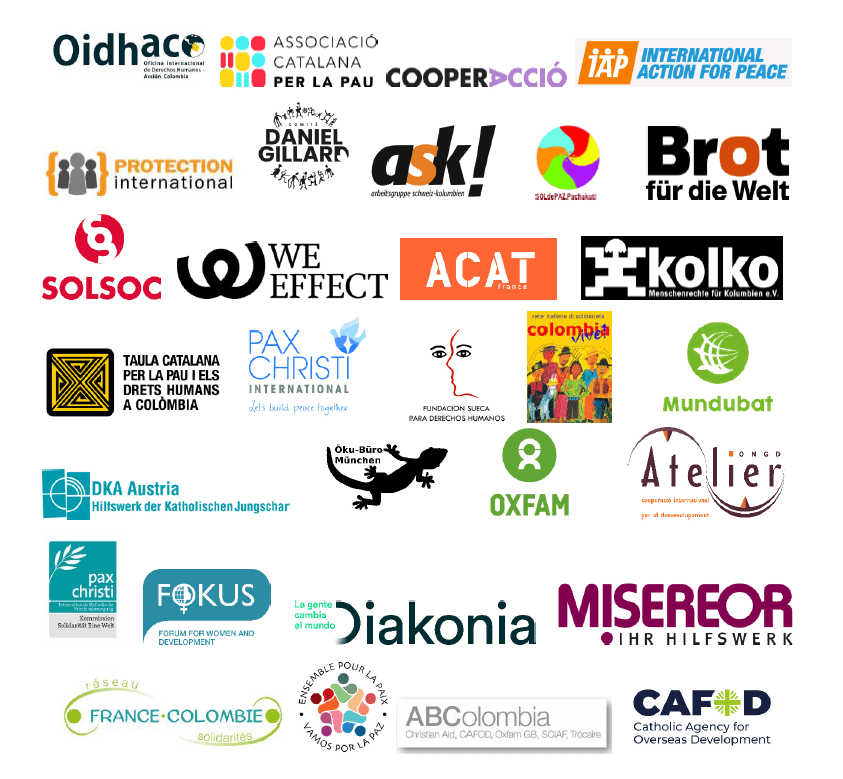10 November 2021

The signatories to this press release celebrate that 24 November 2021 marks the fifth anniversary of the Peace Agreement between the Colombian Government and the Revolutionary Armed Forces of Colombia – People’s Army (FARC-EP), which put end to the internal armed conflict between them, that left more than nine million victims, and that lasted over fifty years.
The signing of the Colombian Peace Accord filled the country and the world with hope. An immediate decrease in rates of violence was a positive and tangible result of the Agreement’s early implementation stage. Highlighting the importance of swiftly implementing the contents of the Agreement to ensure a stable and lasting peace.
Five years on from the signing of the Peace Accord, Colombian civil society continues to demonstrate its support for the transition to peace and engagement with democratic means of bringing about change: mass citizen engagement in legitimate social protest in recent years related to social issues, and the boom in electoral participation area couple of indicators.
There has been some progress in implementation of the Peace Accord, for example, the mechanisms of the transitional justice system are operating and are yielding their first results. In June 2022, the report of the Commission for the Clarification of Truth, Coexistence and Non-Repetition is set to be launched. However, there are serious concerns about the delay in implementing fundamental points of the Agreement, serious violations of human rights and a deterioration in the humanitarian situation in the rural regions, which are disproportionately affecting indigenous, Afro-Colombian and small-scale farming communities.
Nevertheless, the Chapter on Comprehensive Rural Reform which addresses land inequality and the lack of regulation in land tenure, one of the structural causes of the conflict, is the Chapter least implemented, less than 5%. The gender focus, which marked the Colombian Accord as one of the most advanced in history in terms of the rights of women and members of the LGBTI community, has seen barely 23% of implementation. The ethnic focus has been deprioritized following the negotiation phase and the opportunity to move towards
ending the historical exclusion of ethnic peoples is being lost due to lack of implementation.
Since the signing of the Peace Agreement, 292 former combatants in the process of reincorporation and 594 human rights defenders have been killed, in many cases these people were working to build peace and implement the Accord in different regions of Colombia. The violent repression of the public protests in 2020 and 2021 indicates a military (rather than civil) response by both the Government and State Security Forces to social protest, due to the lack of structural reforms that could enable Colombia to have a security service trained for peace and to guarantee democratic participation.
We therefore call on the European Union, its Member States, Switzerland, Norway and the United
Kingdom to:
- Continue to insist on the comprehensive implementation of all aspects of the Final Peace Accord to ensure sustainable and lasting peace, in particular the Chapters on rural reform and the gender focus.
- Continue to support a negotiated end to the conflict with the National Liberation Army (ELN) and the National Commission for Security Guarantees in the development of a policy for the dismantling of paramilitary successor groups.
- Support the Comprehensive System for Truth, Justice, Reparation and Non-Repetition and in particular the Commission for the Clarification of Truth, Reconciliation and Non-Repetition in the dissemination of its report.
- Accompany and monitor the electoral process during the election for the victims’ seats in the Special Transitional Peace Constituencies
